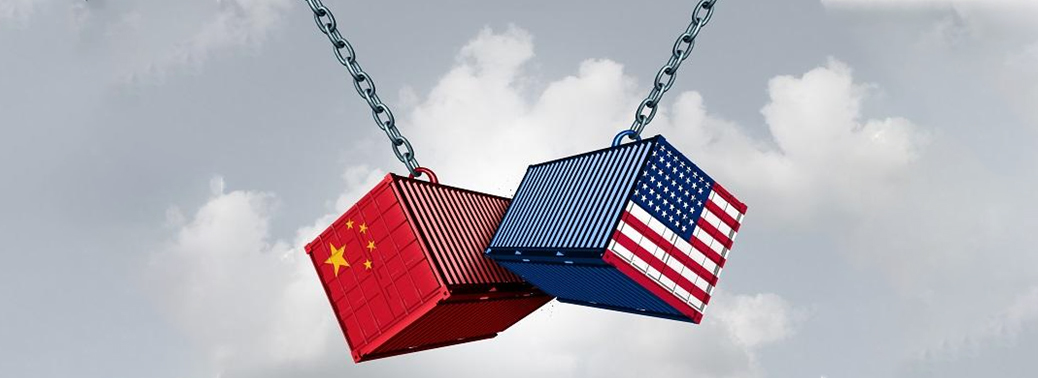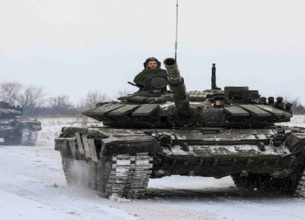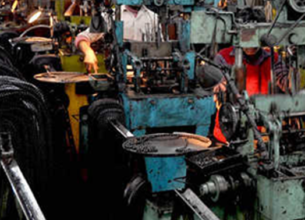US-CHINA TRADE WAR
14, Aug 2019

Prelims level : Economics- International Economics
Mains level : GS-III- Effect of policies and politics of developed and developing countries on India’s interests, Indian diaspora.
- Context: Researchers at Morgan Stanley have alerted that if US and China continue to heap increasing tariff and non-tariff barriers over the next four to six months, the world economy could enter a recession within the next three quarters.
Origin of the US-China dispute:
- The US and China have been slugging it out since Trump slapped heavy tariffs on imported steel and aluminum items from China in March last year, and China responded by imposing tit-for-tat tariffs on billions of dollars’ worth of American imports.
- The dispute escalated after Washington demanded that China reduce its $375 billion trade deficit with the US, and introduce “verifiable measures” for protection of Intellectual Property Rights, technology transfer, and more access to American goods in Chinese markets.
What is a Global Recession?
- In an economy, a recession happens when output declines for two successive quarters (that is, six months). However, for a global recession, institutions such as the International Monetary Fund tend to look at more than just a weakness in the economic growth rate; instead, they look at a widespread impact in terms of the impact on employment or demand for oil etc. The long-term global growth average is 3.5 per cent. The recession threshold is 2.5 per cent.
What has Triggered the Alarm?
- On August 1, trade tensions between the two biggest economies of the world escalated further when the US announced that it would impose 10 per cent tariff on imports from China.
- These measures are to come in to effect from September 1.
China threatened to take Countermeasures:
- In retaliation, China threatened to take countermeasures.
- The US has also declared China a “currency manipulator”.
- In other words, the US accuses China of deliberately weakening the yuan to make Chinese exports to the US more attractive and undercut the effect of increased tariffs that the US is employing.
What is Currency manipulation?
- Currency manipulation refers to actions taken by governments to change the value of their currencies relative to other currencies in order to bring about some desirable objective.
- The typical claim – often doubtful – is that countries manipulate their currencies in order to make their exports effectively cheaper on the world market and in turn make imports more expensive.
- The renewed trade tensions threaten to derail the already struggling global economy.
- For instance, the global manufacturing Purchasing Managers’ Index and new orders sub-index have contracted for the second consecutive month in July; they are already at a seven-year low.
- Further, the global capital expenditure cycle has “ground to a halt”; since that start fo 2018, there’s been a sharp fall-off in nominal capital goods imports growth.
- Central banks around the world are cutting interest rate in a bid to shore up global economic activity.
- To some extent, that cheap money policy is countering the adverse impacts of trade wars and all-round global uncertainty, thanks to Brexit and geopolitical tensions in West Asia, and between the US and North Korea.
How do higher tariffs affect growth?
- According to Morgan Stanley, two-thirds of the goods being lined up for increased tariffs are consumer goods. Higher tariffs are not only likely to douse demand but, most crucially, hit business confidence.
- The apprehension is that the latest US tariffs and similar countermeasures by China could start a negative cycle wherein businesses do not feel confident to invest more, given the lower demand for consumer goods.
- Reduced capital investment would reflect in fewer jobs, which, in turn, will show up in reduced wages and eventually lower aggregate demand in the world.
- What makes this scenario tricky is that fact that monetary policy is already loose.
- Ideally, the global economy should not risk reaching a recession at a time when the monetary levers may not have a lot to offer.
- In fact, at present, the trade tensions and uncertainty is negating the positives that a cheap money policy could provide to the world economy.
How India is impacted by US-China trade war?
- There could be a short-term impact on the stock markets.
- The benchmark Sensex at the Bombay Stock Exchange has been falling in line with global markets that have been spooked by the escalating trade war between the US and China.
- In the longer run, while a slowdown in the US economy does not augur well for emerging markets, the trade war could have a silver lining for some countries.
- India is among a handful of economies that stand to benefit from the trade tensions between the world’s top two economies, the United Nations has said in a report.
- Other countries set to benefit from the trade tensions include Vietnam, with 5% export gains, Australia (4.6%), Brazil (3.8%), India (3.5%), and Philippines (3.2%), the UNCTAD study said.
The value of the Indian Rupee:
- In the last one month, the value of the rupee has dropped to an all-time low, when in some occasions it was hovering around the mid 68s against the US dollar.
- This coincided with Donald Trump’s threat of imposing a fresh round of tariffs on exports worth $200 billion.
- This trend can be traced to the weakening of the US dollar, which automatically creates a negative impact on the trade deficit of India, causing a chain reaction of sorts.
India-US duties
- As the United States of America imposed duties on steel and aluminium, India now has to pay approximately $241 million worth of tax to the US.
- India, on the other hand, as a counter-measure has proposed imposing duties on 30 different types of goods.
- This will ensure that the US has to pay about $238 million as duties to India.
- However, this will make life more difficult for the end consumers as everything that falls under the tariff scanner is expected to become more expensive.














